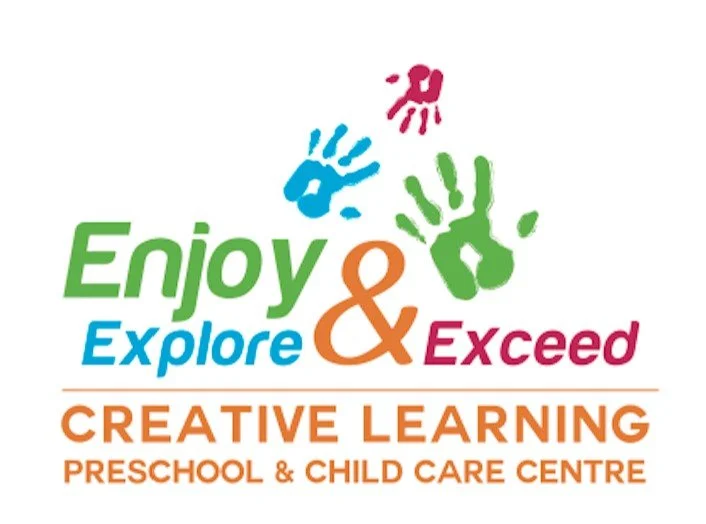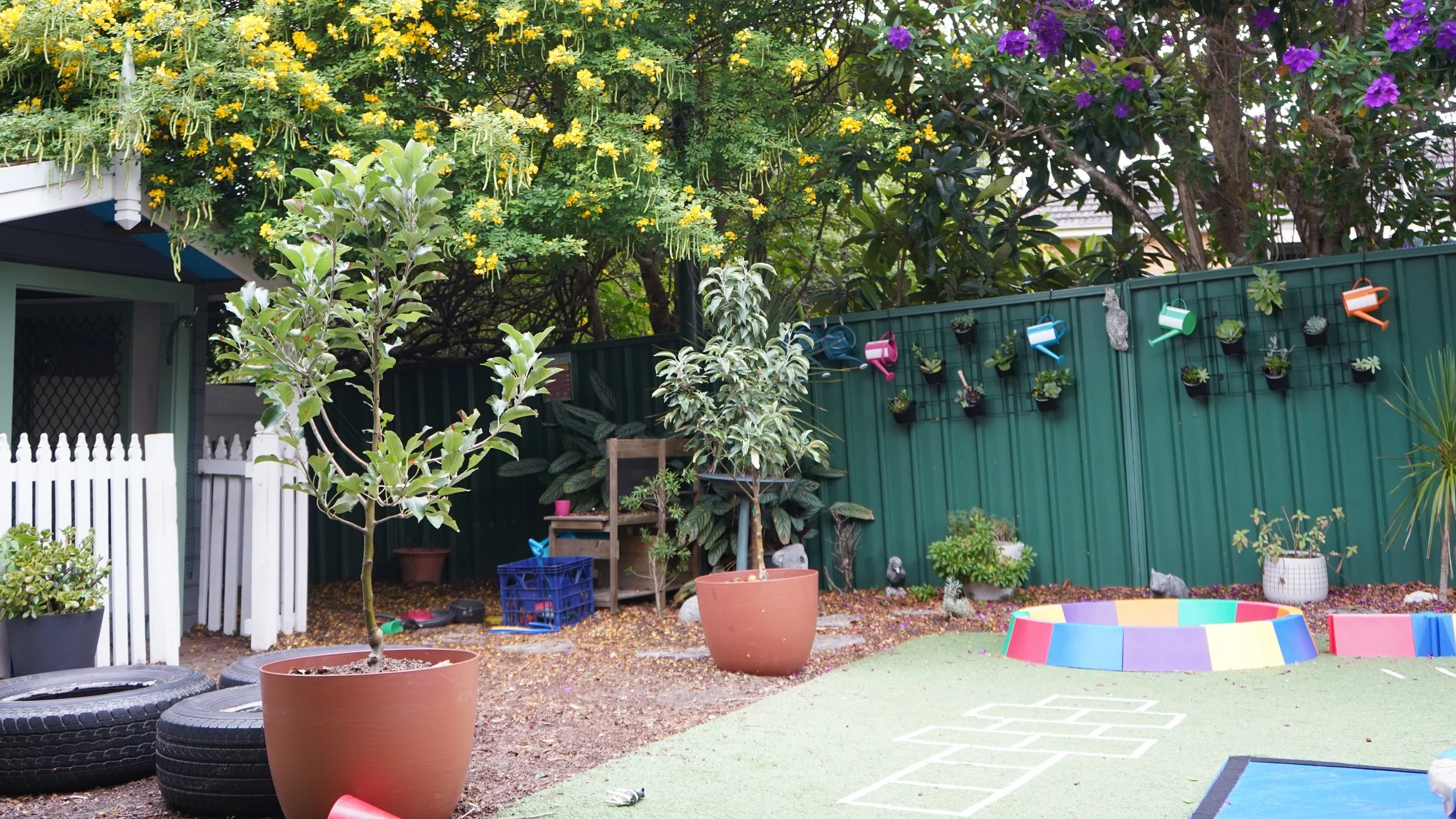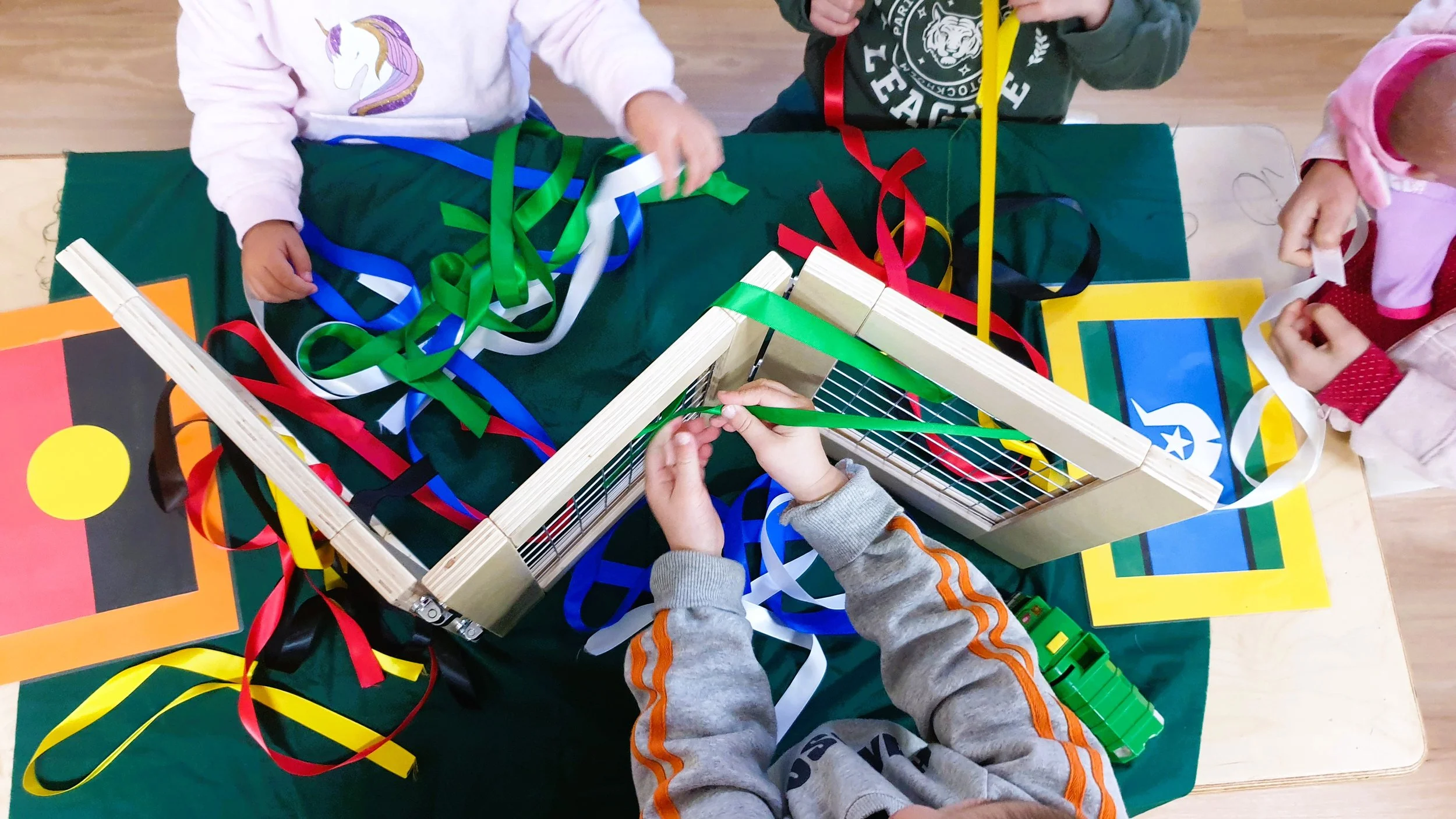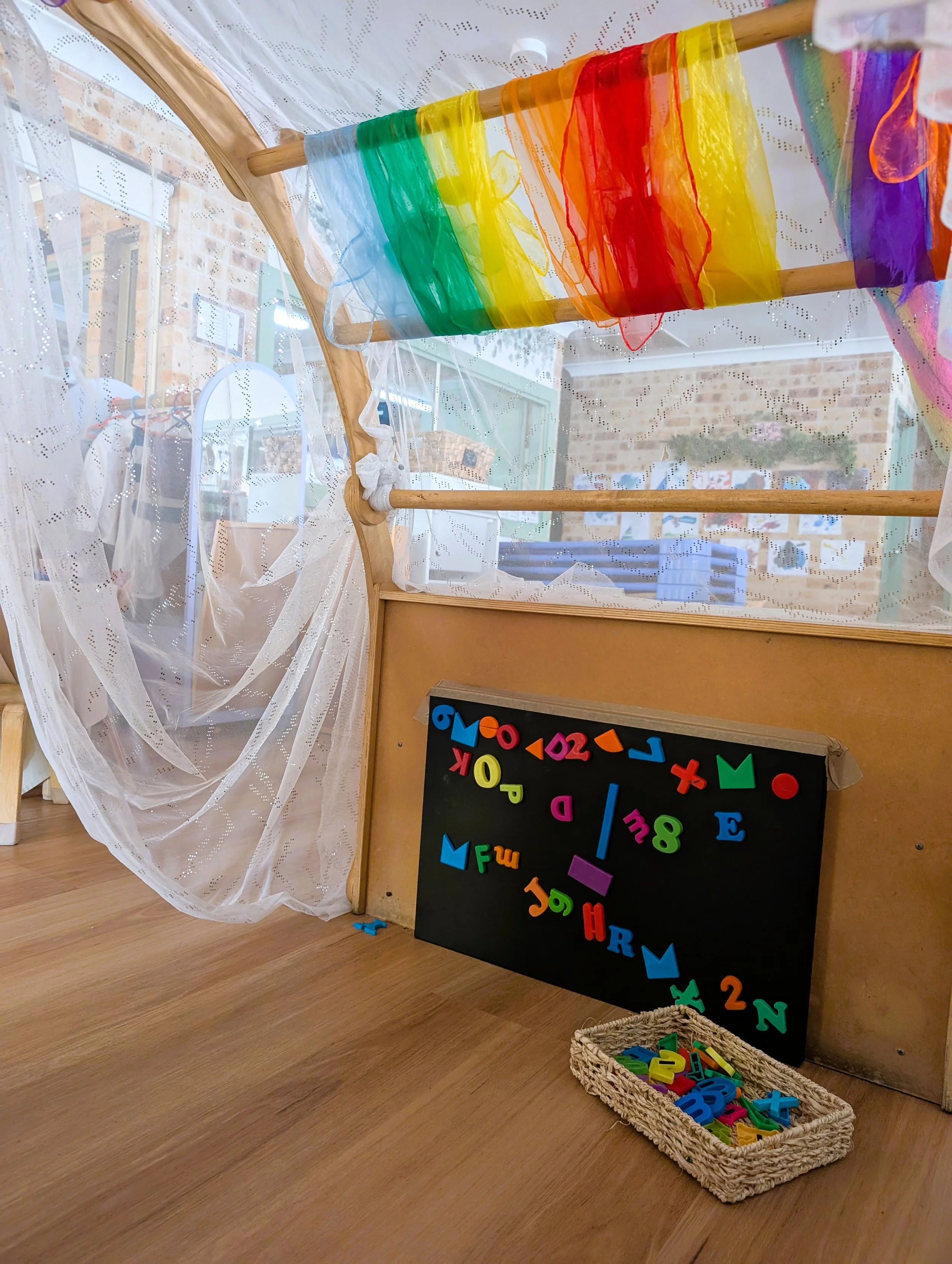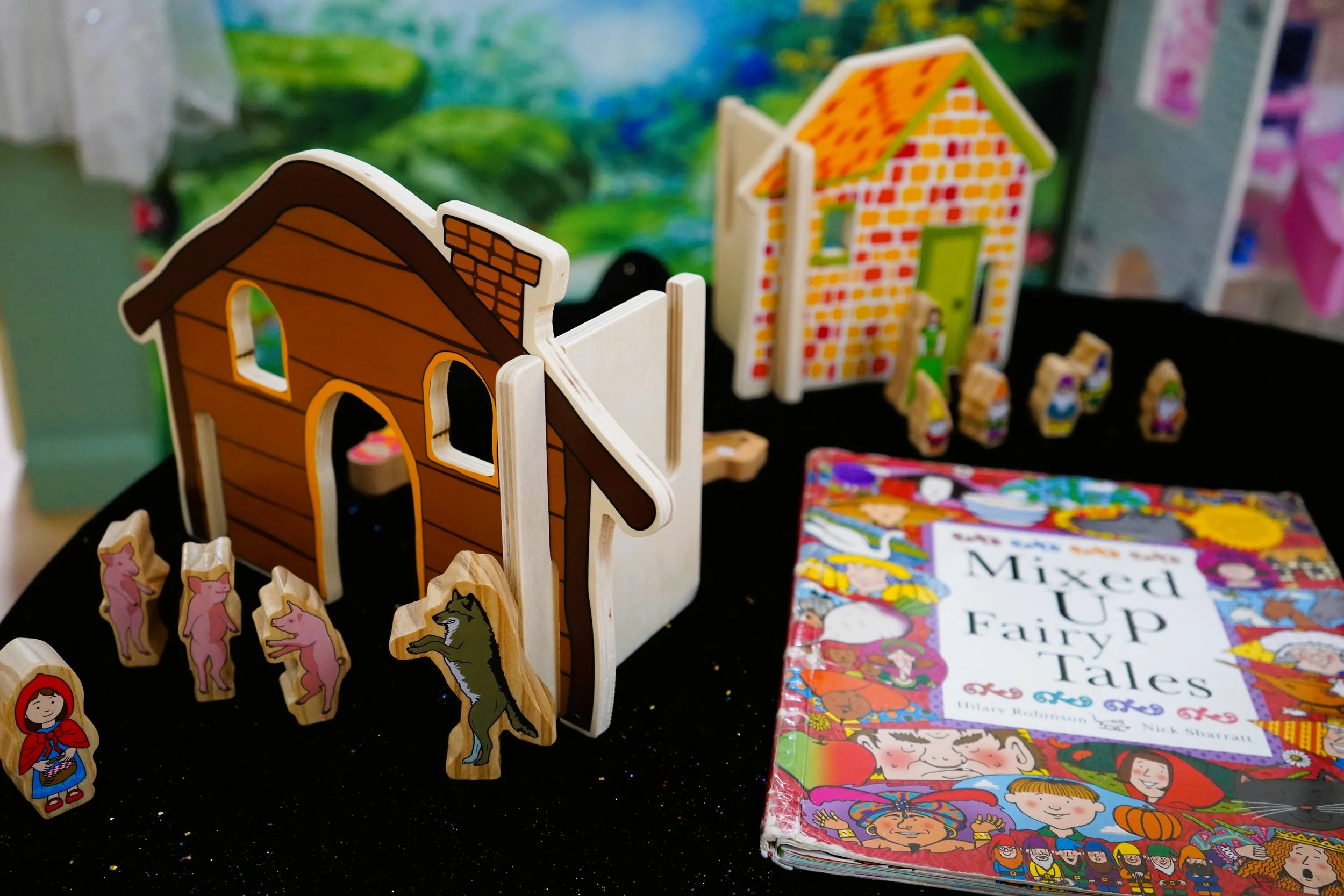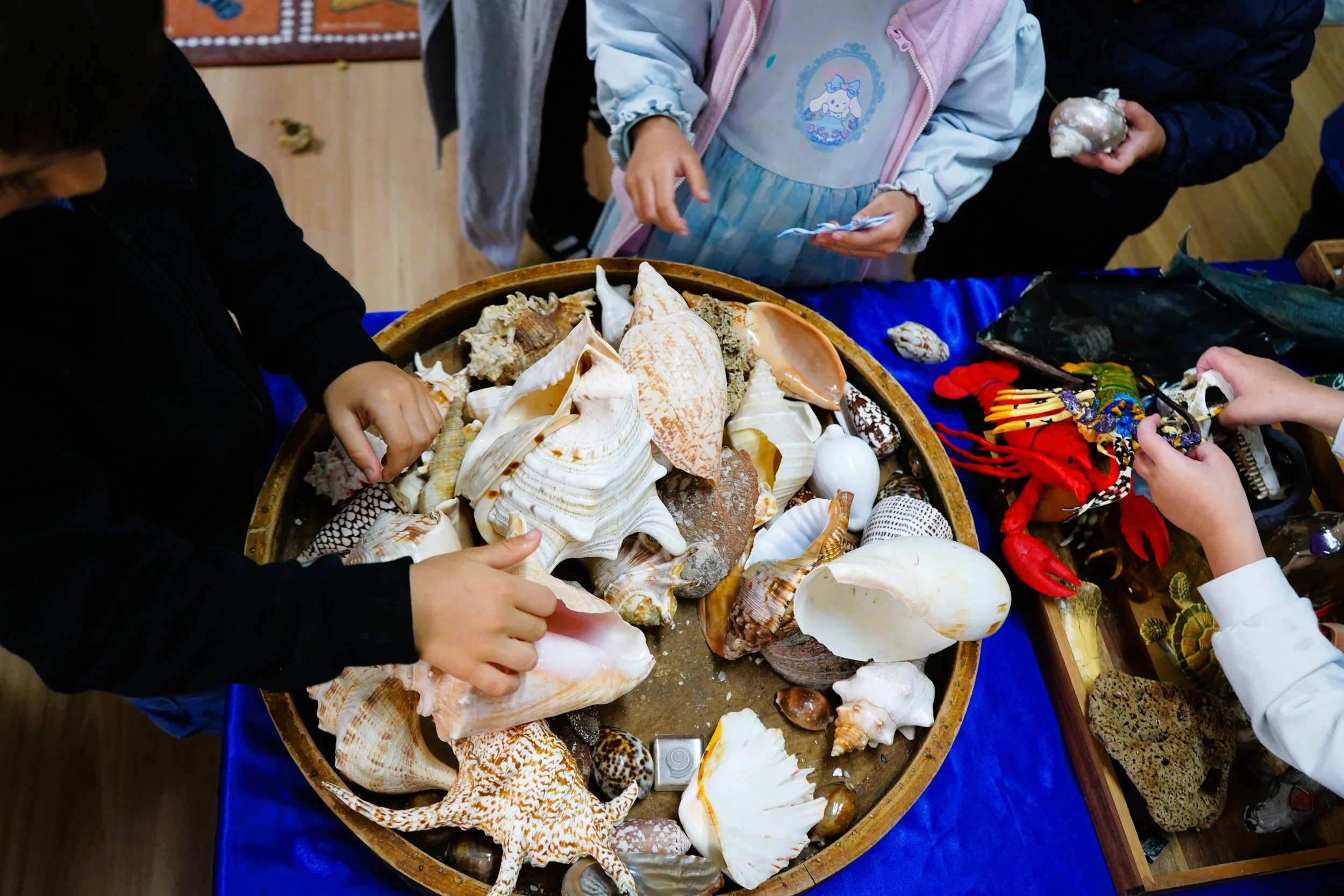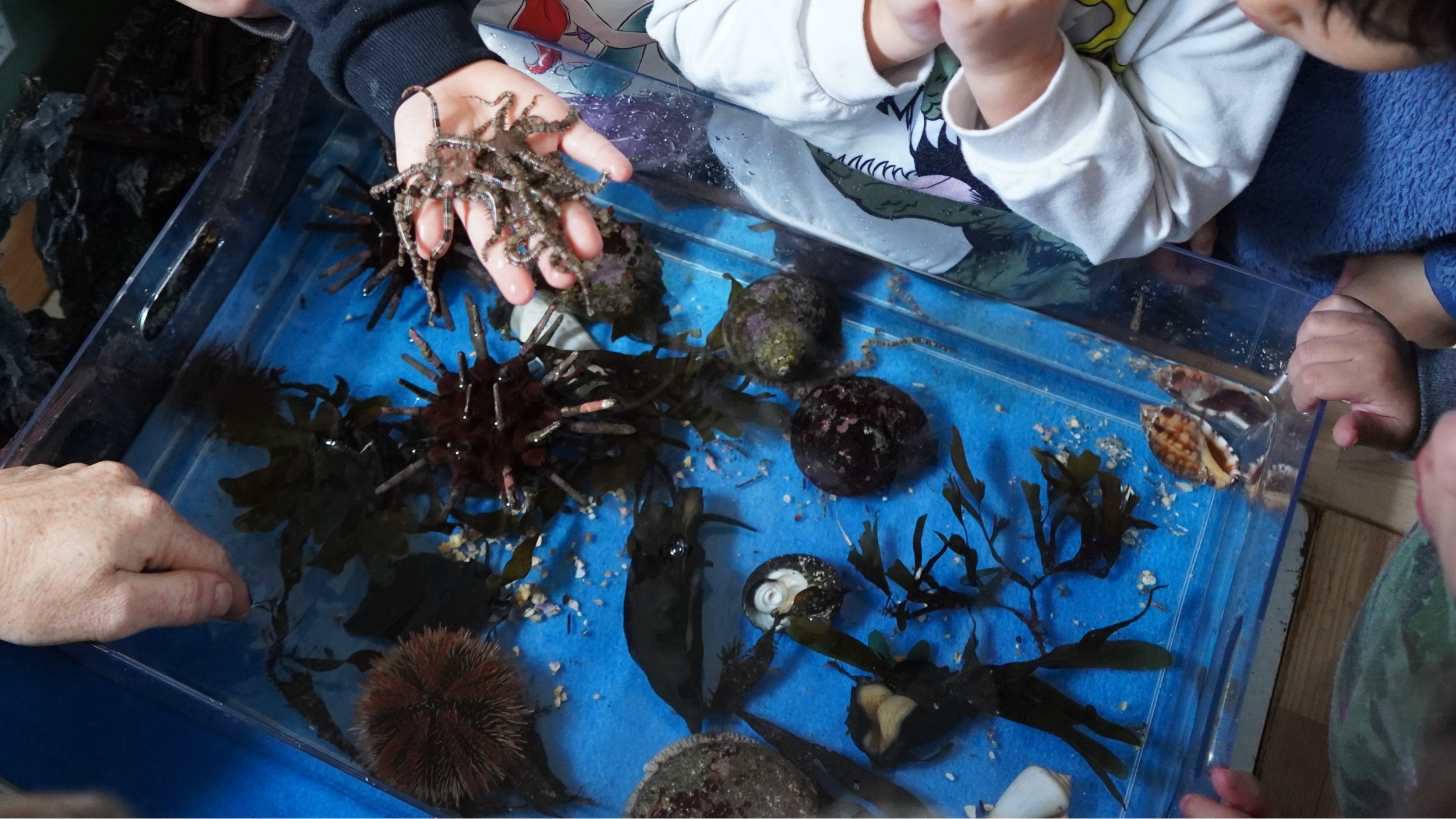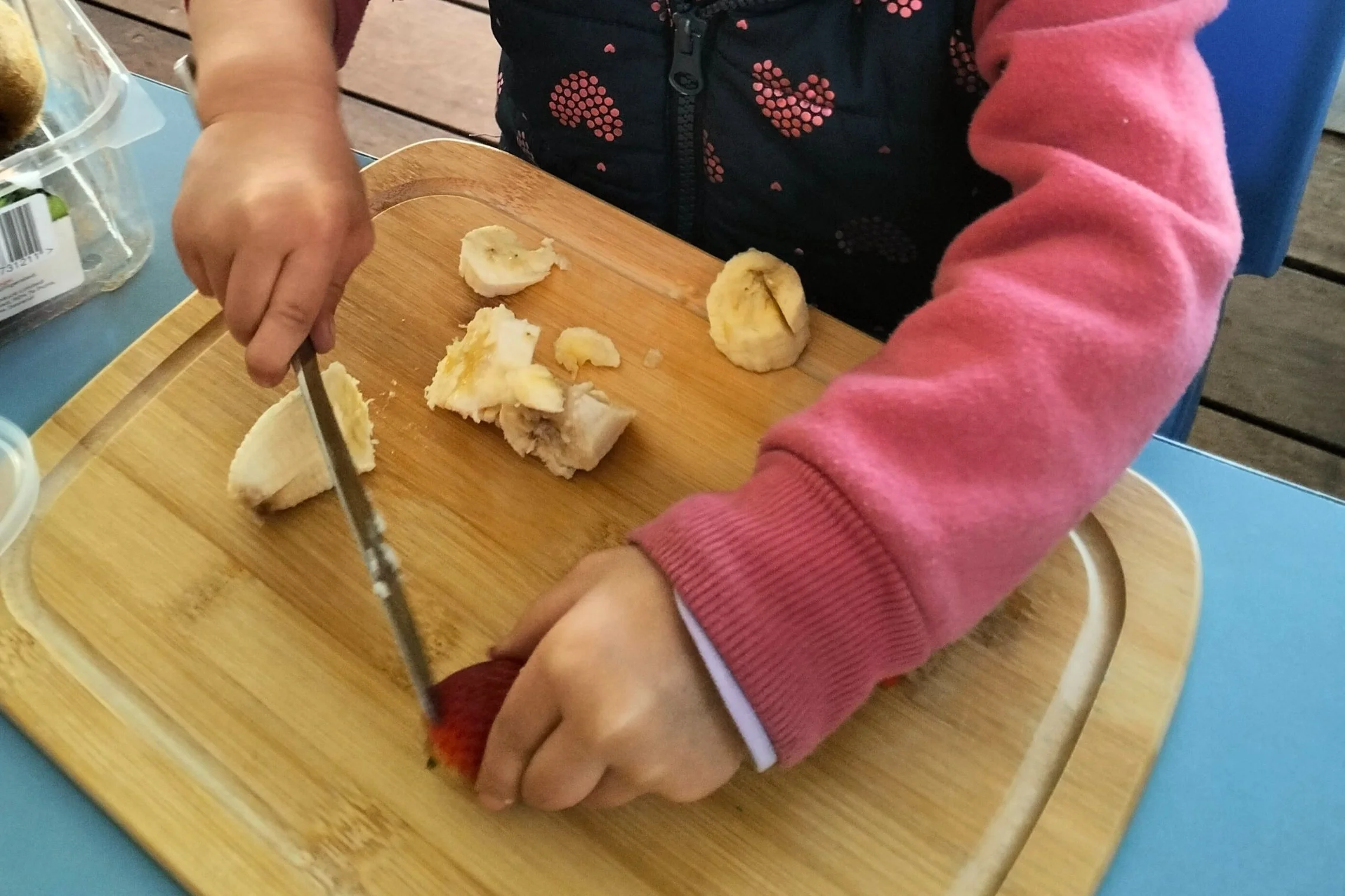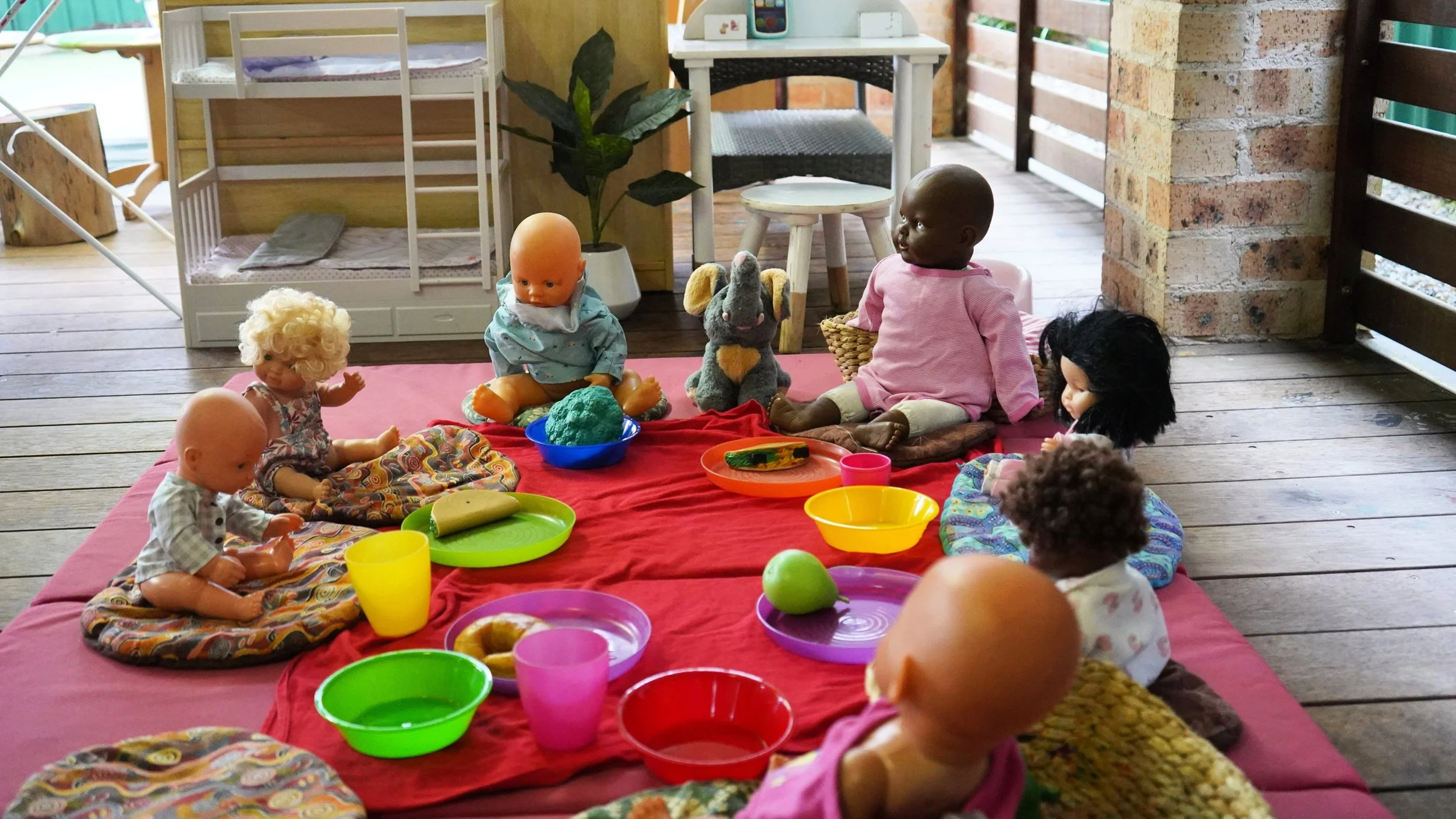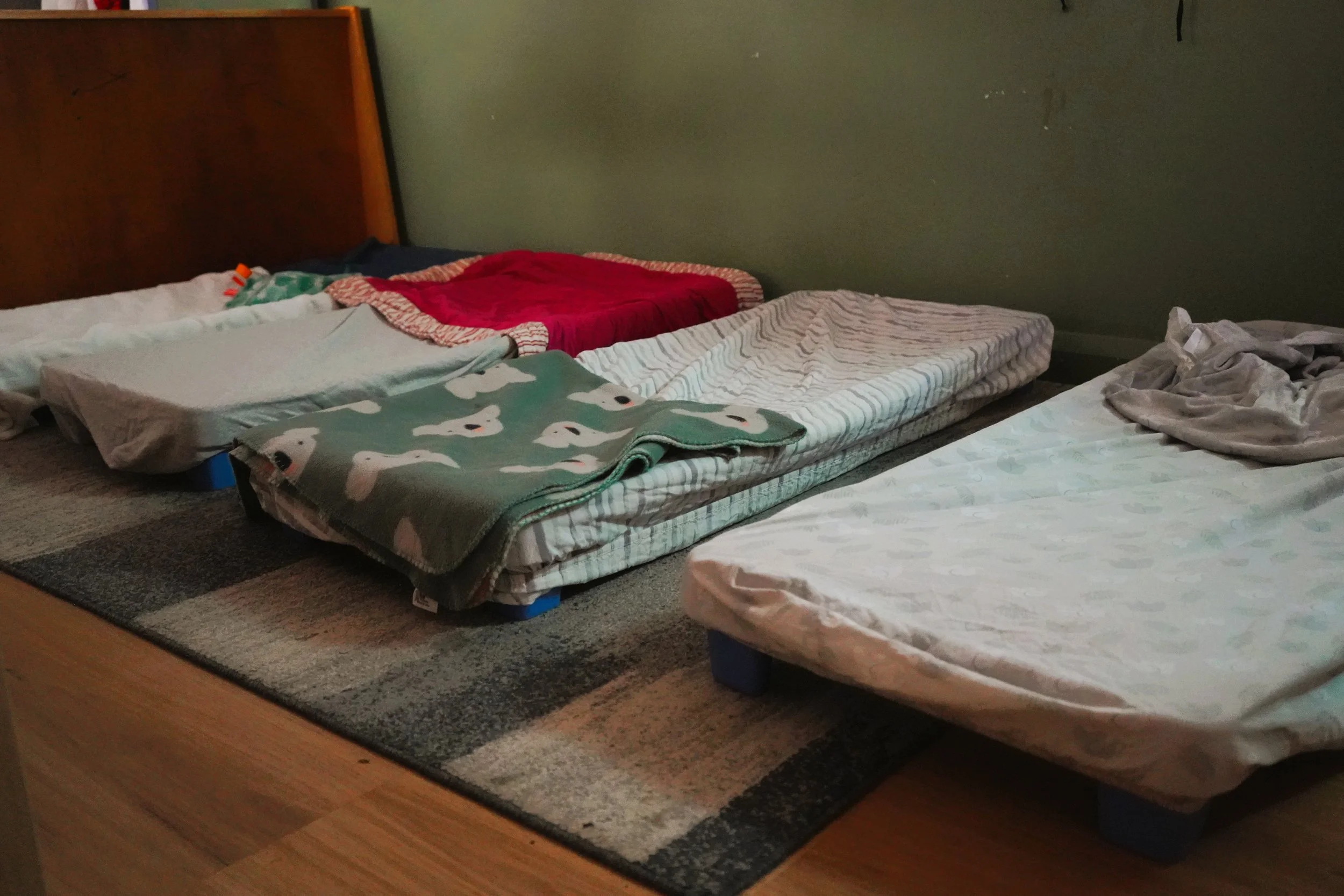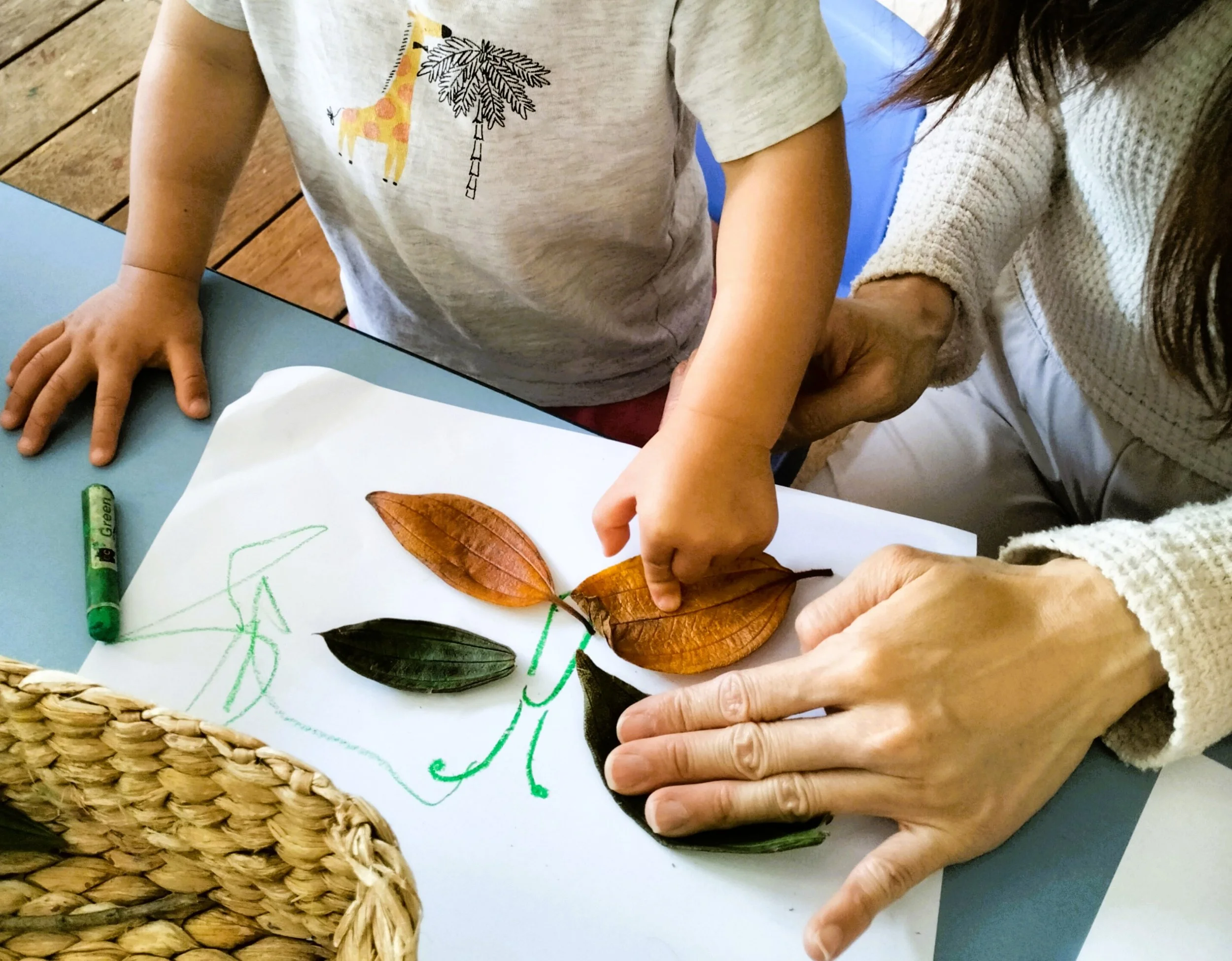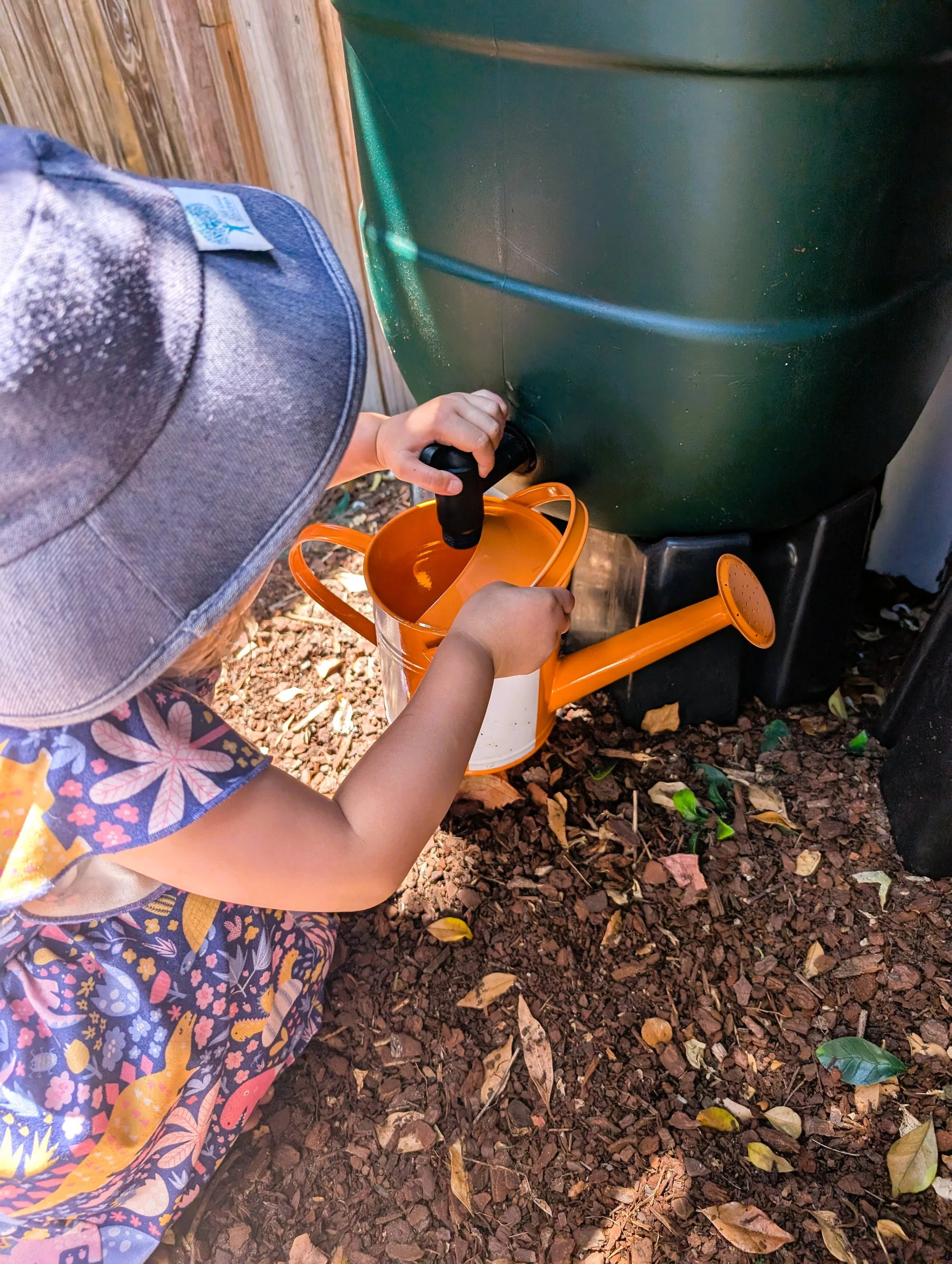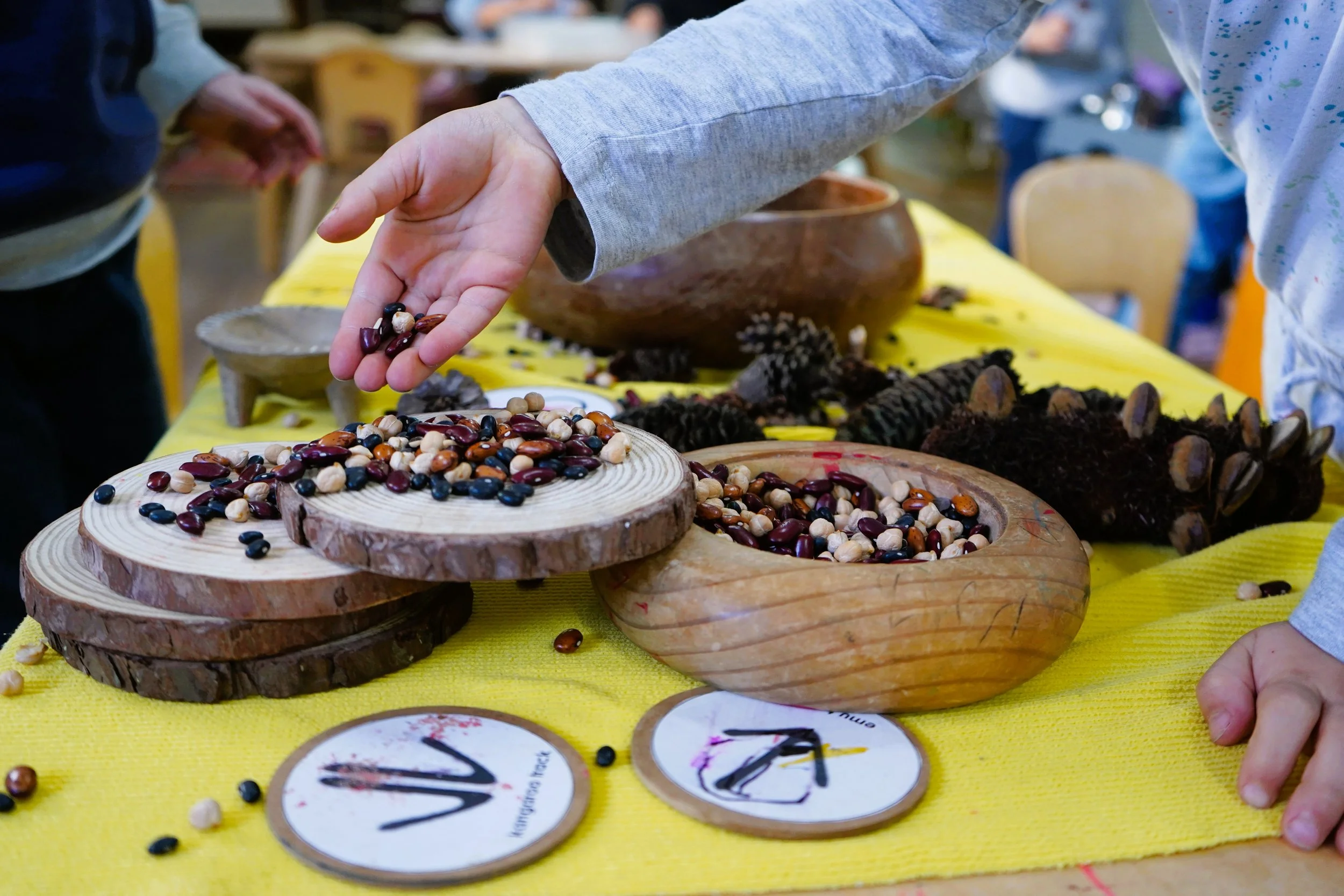
Learning Programs
At Creative Learning Preschool, our program takes many forms. We believe that children learn best through engaging play-based activities that are based on children’s interests, both voiced and observed.
Our lead educators plan a weekly program that outlines the experiences that will be offered to the children. These planned experiences are informed by children’s interests and developmental needs as observed by educators or shared by children and families.
There is also flexibility within these programs to make adjustments or to allow for spontaneous learning activities to occur. This means that life's beautiful moments are not overlooked by a pre-planned schedule.
Child-Led Exploration
During the morning and afternoon, we implement mixed-age/family grouping, which allows children of all ages to interact with each other. We find that this is beneficial to younger children as they learn from their peers and are inspired to try new activities, while the older children have opportunities to build on their leadership skills as they mentor their younger friends.
During these mixed-aged groupings, we aim to provide children with plenty of time for uninterrupted play and flexibility of being indoors or outdoors, depending on their preference. This allows children opportunities to explore learning environments that are relevant and meaningful in the moment.
Group Time
After morning tea each day, our children split into groups to spend time on group-specific activities planned by their lead educator. These activities are adjusted to be developmentally-appropriate, and take into consideration the capabilities of each child within the group.
Our 3 groups are:
Lilly Pilly, Toddlers aged 18 months - 3 years old
Banksia Group, Preschoolers aged 3 years - 4 years old
Waratah Group, Pre-K aged 4 years - 6 years old in the year before school.
Transition to School Program
The transition to school is a very important time in a young child’s life and begins well before a child begins at a childcare or preschool service.
Many families express that their understanding of school readiness is teaching the Alphabet, numbers or reading skills, however this is not necessarily developmentally appropriate for children under 6 years old. Children will have plenty of time to learn these things when they are actually in kindergarten!
Whilst we do include aspects of these academic learning in our school readiness program, our major focus is to provide opportunities for children to learn the skills required to successfully transition into the kindergarten classroom. This includes encompassing all previously mentioned curriculum categories.
At Creative Learning Preschool, we understand the importance of providing our pre-schoolers with the best possible start to their primary school journey while they are still in kindy. To accommodate this, we provide our pre-schoolers with a comprehensive transition to school program from the moment they step into the classroom. Our school readiness program is run for the Waratah Group only, in the year before children attend school. Children will participate in increasingly complex group sessions appropriate for the interests and developmental capabilities of each child.
Special Events and Celebrations
Each month, Group Leaders will plan for upcoming special community events and cultural celebrations. This information will be shared with families, and ideas on how to celebrate each event are always welcome. Educators offer music, songs, dance, storytelling, decorating, cooking experiences, sports or physical activities, art and craft experiences to acknowledge and celebrate special and cultural events.
Engaging in special events and cultural celebrations helps children to develop a strong understanding of their own personal and cultural identity, whilst also developing understanding and acceptance of cultural diversity.
Incursions and Excursions
In conjunction with children’s learning and development interests and special/ cultural events, we aim to provide children with opportunities to engage with the wider community through external company events within our service or excursions to places outside of our service. This may be through visits from local professionals (firefighters, police, Sydney Trains, Surf Lifesavers, Life Education), walking excursions within our local community (North Ryde Library, local parks).
Occasionally, we may organise a larger travelling excursion (e.g. Power House Museum, Sydney Aquarium, Taronga Zoo). This is highly dependent on the group of children, their interests, and other opportunities that have been provided throughout the year.
Parents will always be notified of intent for these events ahead of time and asked for permission for excursion events.
We aim to provide 2 - 3 incursions and 2 - 3 walking excursions (children 3y/o and up) every 6 months.
Munch and Move
Physical activity and gross motor skill development are vital to the healthy development of children. To ensure we are providing children with ample opportunities to develop their gross motor skills, guide correct movement form, and positively direct some of that never-ending energy that children seem to have, we run a physical development activity each day as a transition to lunch. Fundamental movement skills (FMS) are focused on during these sessions in line with the NSW Much and Move FMS yearly calendar.
Healthy Eating and Nutrition
Learning about healthy eating and nutrition is such a vital part of early childhood development. This is why we include our mealtimes as part of our daily learning programs.
We offer an optional progressive morning and afternoon tea, where we encourage children to ‘listen to their bodies’ to see if they are hungry. Older children are able to serve their own fruits and vegetables from a shared platter, while younger children are asked about their preferences while being served.
Children are also able to request preferences of seasonal fruits and vegetables offered at morning and afternoon tea times by using the visual preference boards.
Our lunch menu is developed seasonally and prepared fresh each day by our in-house cook to ensure the foods offered to children are both nutritious and delicious. Children's and family input is considered when developing menus, and we aim to gather inspiration for our lunch meals from different cultures around the world, providing our children with a variety of food to try.
Lunch time is when our children come together to share the midday meal. Children are encouraged to try a little bit of everything offered, but never forced to do so.
Our educators also provide opportunities throughout the year to explore foods and nutrition, such as through cooking experiences, taste-testing experiences, reading books, researching foods, exploring food sensory activities, and food-themed dramatic play (e.g. café, restaurant, or home kitchen).
Through all of these experiences, we aim to provide holistic learning on food and nutrition within our service.
Sleep and Rest Time
Children’s sleep and rest routines vary according to individual needs. We aim to make rest time after lunch a relaxed, pleasant time for all children. We provide beds for children and play soft music in the background. Your child may wish to bring a security or comfort item to have at rest time. Please feel free to discuss your child’s rest or sleep needs with our educators. Restful activities are available during rest time for children who do not sleep. Please note we will never prevent a child from sleeping if they are displaying signs of tiredness at any time of the day.
Children who do not sleep are invited to participate in a mindfulness and meditation session instead, which may include reading books, listening to meditation or sleep stories, listening to podcasts or music, or doing stretching or yoga exercises.
Afterwards, suitable quiet activities, such as looking at books, completing puzzles, engaging in construction, drawing, or craft activities, are provided.
These sessions are important for children to develop an understanding of their own physical needs for sleep and rest, that other people’s needs may be different from our own, and to have time for mindfulness.
Arvo Activities
We implement ‘Arvo Activities’ as extracurricular or interest-based hobbies between 3:30pm – 4:00pm each day during school terms only. These programs are interest based and led by a different teacher each day. Some examples of Arvo Activities include creative arts, board games, cultural exploration and language, cooking, music and movement, sustainability and gardening, specific/ modified sports, and science exploration. All children have the option to join in these activities or not based on their own interests.
